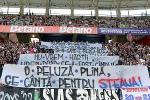Recent research has put in evidence several Romanian paradoxes. Thus, the majority of the Romanians feel the lack of leadership, of authority.
Romania is seen as a village haunted by thieves. Amateurs of village protection and attracted by state-authoritarian paternalism, the Romanians are seeking for their impassioned leader. Without his whip, they are demobilized and goalless. On the other hand, however, the Romanians have a total distrust in the elites and reluctance towards leaders. The egalitarian size of their profile is quite obvious. Anyone who appears as a leader is challenged. Whoever comes out in front and asks for the political power loses popularity and credibility. By definition, the leader is seen as selfish, corrupt, greedy, lazy and a liar.
Romanians do not have any confidence in institutions either. The Parliament, the Government, the Justice, the Police, the Mayors, the ministries etc. are seen, at best, with suspicion when they are not treated with contempt or even hatred. A survey shows that the legislature is perceived to be the tip of corruption. How can an institution chosen to adopt the collective and eminently general procedures be corrupt? Corrupt parliamentarians exist, of course. However, most of them should be corrupt to talk about a corrupt Parliament. If institutions are despised, the individual functions that compose it are valued.
Romanians trust functions, meaning their miraculous ability to transform a ridiculous character in a respectable one. The Parliament is bad, but the parliamentarians are coveted. The degree of favorable assessment of a person increases when they occupy a public position.
The correlation of the described paradoxes shows that Romanians are looking for non-institutionalized elites, individual leaders. How can they work in a modern society outside the i


